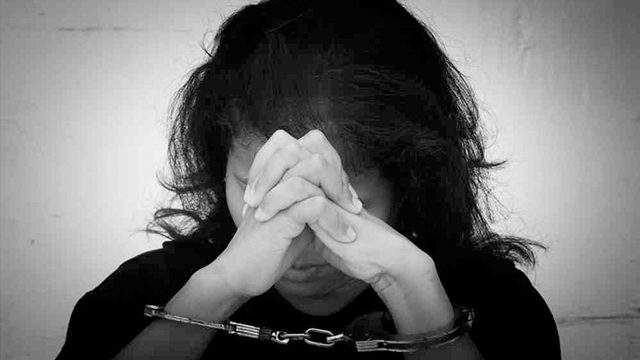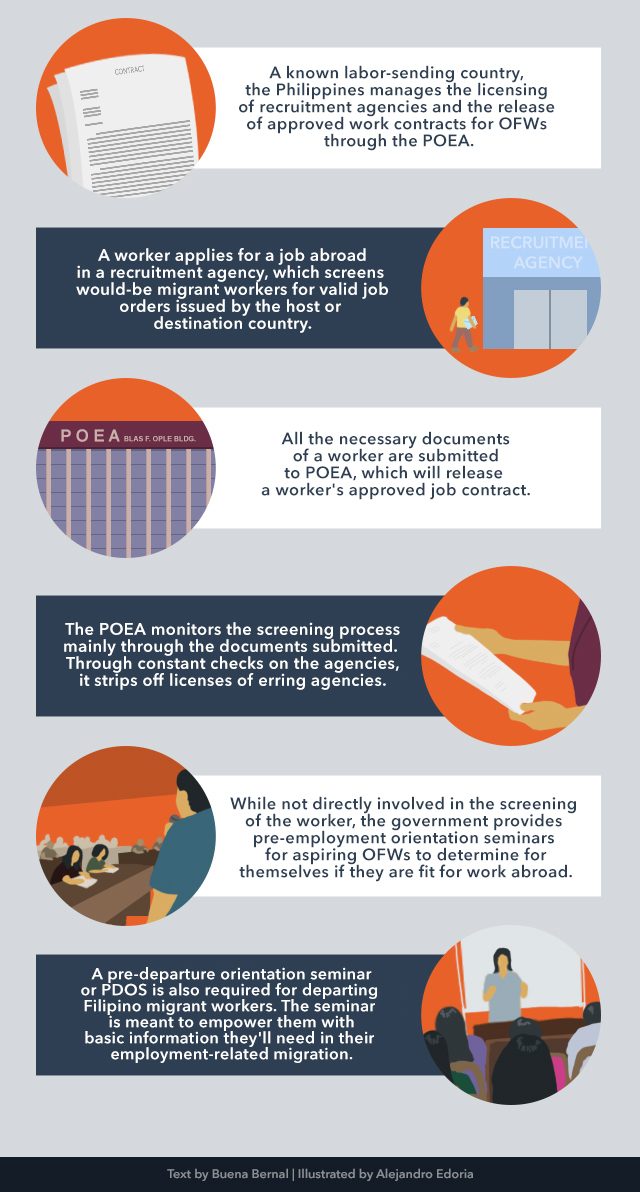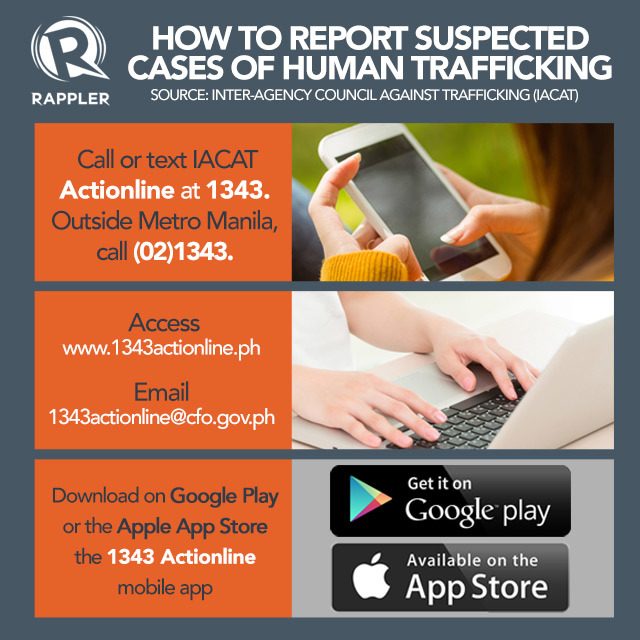SUMMARY
This is AI generated summarization, which may have errors. For context, always refer to the full article.

MANILA, Philippines (UPDATED) – Philippine authorities recently rescued two trafficking victims, who were posing as missionaries bound for Malaysia, where they were promised jobs as caregivers.
Without disclosing the victims’ names, the Bureau of Immigration (BI) reported that the two admitted they were recruited by Malaysian national Panisilyam Santiago.
The two victims had Air Asia tickets and were escorted by one Jefferson Cal, who introduced himself as a pastor of the Genesis Church of Christ. From the Mactan-Cebu International Airport, where they were stopped June 9, the victims had been turned over to the Inter-Agency Council Against Trafficking for further investigation.
The victims said “Brother” Santiago promised them legal documents upon arrival in Kuala Lumpur.
Reaching out to Rappler, Cal said he is not involved in any human trafficking operation.
He added the immigration bureau was mistaken in naming Santiago as the recruiter, adding that they have been cleared later on by the National Bureau of Investigation.
He explained that Santiago was a well-meaning sponsor for the leisure trip of his two church mates, who were to visit a homecare facility to decide for themselves if they would want to work there in the future.
“The failed trip didn’t just waste our sponsor’s money but it also gives us a traumatic experience,” said Cal, tagging the immigration officer as “abusive.”
Immigration Commissioner Siegfred Mison reiterated the state’s stern warning against unlawful recruitment tactics.
“We are strengthening our fight against human trafficking and illegal recruitment,” said Mison. “These illegal recruiters promise greener pastures, but, in many cases, workers end up underpaid and working in inhumane conditions.”
In 2011, the BI said it had stopped the departure of 6 female trafficking victims who pretended to be nuns, all intending to work in Lebanon as domestic workers.
The Philippine Overseas Employment Administration (POEA) has said that the promises of fast-tracked job placements abroad made by illegal recruiters are deceptive for they can only secure travel and not much else – not even a job. (READ:Illegal recruiters are ‘fast for all the wrong reasons.’ – POEA)
Active job orders from destination countries of would-be overseas Filipino workers are coursed through the POEA, which releases an overseas employment certificate based on the legitimacy of the recruitment and the job. (See the process below)

Legal process
The Philippines has been a source country in cross-border human trafficking operations.
Syndicates prey on many unsuspecting Filipinos by offering overseas employment. Some illegal recruiters and human traffickers now work with drug traffickers, using recruits as drug couriers.
Since President Benigno Aquino III took his oath of office in June 2010 up until last March 27, government prosecutors were able to secure 153 human trafficking case convictions. These consist of 174 convicted traffickers punished mostly with life imprisonment and corresponding fines. (READ: Human trafficking convictions: How has government fared?)
Still, the 2014 Trafficking in Persons Report by the US State Department said the Philippines’ “overall number of convictions remained low compared to the size of the problem.”
On top of the Philippine government’s list of illegal recruiters is Isidro Rodriguez, who duped many Filipinos with ghost job offers in the United States.
To check if a recruiter has a valid license, the POEA has an online database of recruiters with their corresponding statuses, whether they are in good standing, delisted, cancelled, forever banned, inactive, revoked, suspended, or denied renewal.
A free mobile app was developed by the POEA in March 2014 which shows the status of a recruitment agency, active job orders, information about illegal recruitment, and how to identify an illegal recruiter. Civil society organizations, however, have lamented that the database is belatedly updated and therefore sometimes contains inaccurate information.
Reporting suspected cases of human trafficking can be done through any of the following:

- Call or text the IACAT Actionline at 1343. If outside Metro Manila, call (02)1343.
- Access www.1343actionline.ph
- Email 1343actionline@cfo.gov.ph
- Download on Google Play or the Apple App Store the 1343 Actionline mobile app
The Commission on Filipinos Overseas, an IACAT member-agency, is in charge of the hotline. – Rappler.com
Image of praying woman from Shutterstock
Add a comment
How does this make you feel?
There are no comments yet. Add your comment to start the conversation.